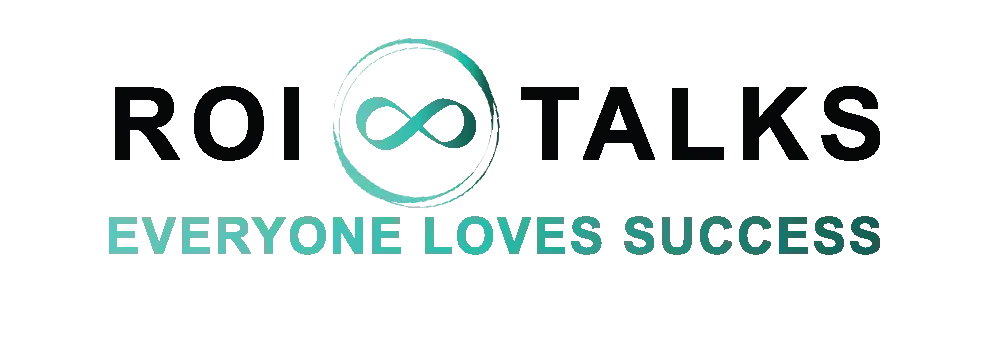Everyone Loves Success
Roi Talks Blog
Beyond the Excuses: The Real Work of Tackling Procrastination
Procrastination is Human but not hopeless.
Almost every workplace is haunted by procrastination. That feeling when an important task gets pushed, and pushed, only to resurface at the worst possible moment, bringing stress and sometimes disappointment. But procrastination is not simply laziness. It is a complex behaviour triggered by fear, perfectionism, unclear expectations, or being overwhelmed by competing priorities.
For leaders, tackling procrastination is about more than ticking boxes. It's about nurturing self-awareness, team trust, and helping people do their best work, even when anxiety or uncertainty strike.
Why Address Procrastination?
Improve Productivity
Teams that face procrastination head-on achieve more. Addressing it helps individuals move past avoidance, turning intention into consistent action. As one research study notes, workplace procrastination can lead to hours lost each week and thousands in productivity losses per employee annually.Meet Deadlines
Delays cause project creep and missed commitments. Timely completion of key tasks makes the difference between organisational success and frustration.Enhance Team Morale
Chronic procrastination can erode trust, increase stress, and decrease job satisfaction. Healthier, more motivated teams emerge when obstacles are addressed honestly.Maintain a Positive Reputation
A team's public image depends on its reliability. Regularly missing deadlines or deliverables risks damaging both internal and client confidence.Facilitate Individual Growth
Overcoming procrastination is a learning journey—one that builds personal resilience and career momentum.
The Science: Why We Procrastinate
Research shows procrastination is a self-regulation failure—delaying tasks even when we know there might be negative consequences.
Underlying causes often include:
Fear of failure or imperfection
Overwhelm from complex, ambiguous projects
Lack of clear goals and accountability
Emotional factors such as anxiety or stress
Environmental distractions and poor work design
Professor Amy Edmondson’s psychological safety framework helps explain why avoiding tasks sometimes feels safer than trying and failing. When teams feel supported enough to admit struggles, root causes come to light—and solutions grow possible.
Leading Frameworks and Models
Patrick Lencioni’s Five Dysfunctions of a Team: Trust and accountability are the foundation for productive action.
Amy Edmondson’s Psychological Safety: People who feel safe are more likely to ask for help and admit when they’re stuck.
Daniel Goleman’s Emotional Intelligence: Recognising and managing emotions is key for breaking the cycle of avoidance.
Stephen Covey’s Circle of Influence: Focus on what you can change, not what you can’t.
The W.I.S.E Compass: Words show courage, Intention gives clarity, Silence reflects conviction, and Energy brings compassion.
AAA Model (Appraisals, Attributions, Adaptation): Cognitive appraisal of a challenge or hindrance shapes workplace behaviour, as shown in recent diary studies.
What To Do When Procrastination Happens
1. Identifying procrastination
Leaders must pay attention to repeated delays, unfinished work, or last-minute scrambles. Transparent conversations about workloads or emotional blocks help surface issues sooner.
2. Understanding underlying causes
Avoid blanket solutions. Procrastination can spring from fear, perfectionism, or demotivation—leaders should explore root causes during check-ins or retrospectives.
3. Implementing strategic interventions
Provide targeted tools—whether that's better project planning, support for time management, or mentoring relationships.
How To Handle Procrastination Practically
Set clear goals and expectations
Define what success looks like. Use the OOI (Output, Outcome, Impact) framework to clarify objectives and expected results.Break complex tasks into steps
Large, ambiguous projects paralyse even the best. Help teams break them down into manageable milestones.Teach and model prioritisation
Guide teams in sorting urgent from important, using Covey’s circles or agile sprint planning.Provide sufficient support and resources
Remove bottlenecks. Offer support where capacity is stretched, or training where skills gaps are exposed.Monitor progress and remove obstacles
Regular check-ins, retrospectives, and one-on-ones catch issues before they become crises.Encourage accountability and positive peer pressure
Use progress boards, stand-ups, or peer review to build community momentum.Foster a positive, psychologically safe culture
People who feel safe discuss setbacks early. This sense of communal safety encourages action.Reward incremental victories
Celebrate each step completed—not just finished products. Recognition multiplies motivation.Be a role model
As a leader, openness about your own struggles with procrastination demystifies the challenge.
Real-World Examples
Example 1: Breaking Down Overwhelming Projects
A software team repeatedly delayed a product launch. The manager broke the work into daily, visible goals—each tracked and celebrated. Progress was both faster and less stressful for everyone.
Example 2: Accountability Through Conversations
A marketing group introduced weekly goal-setting sessions. Members not only set personal goals but also discussed what's blocking them. Mutual accountability and open dialogue led to significant improvement in completion rates.
Example 3: Prioritisation and Environment Tweaks
A remote team facing home distractions set defined “deep work” hours, shifted meetings to afternoons, and created scheduled break periods. This reduced procrastination and led to better overall morale and delivery.
Practical Toolkit To Stop Procrastination
Hold “procrastination retrospectives” as part of regular process improvement.
Use visual progress tracking—Kanban boards, checklists—to make progress tangible.
Offer short, focused workshops on time management and emotional resilience.
Recognise and discuss emotional factors as valid workplace topics, not just personal failings.
Initiate peer mentoring or buddy systems, especially for new or struggling team members.
Establish “work sprints” or power hours with shared accountability.
Reflective Close
Ending procrastination isn’t about eliminating all delay forever—it’s about building a workplace where momentum wins out over avoidance.
The real challenge for leaders is not to shame or pressure people, but to inspire safe, supportive, and structured action. At your next team meeting or project launch, try this question: “What’s one thing we’re putting off, and what would help us start—today?”
Being honest, supportive, and action-focused will move your team out of procrastination and into meaningful accomplishment. How will you help your team turn intention into action, and build a workplace where forward progress is the norm?

ROI TALKS™
Marina Plaza - Office 1004 -1006
Dubai Marina, Dubai, UAE